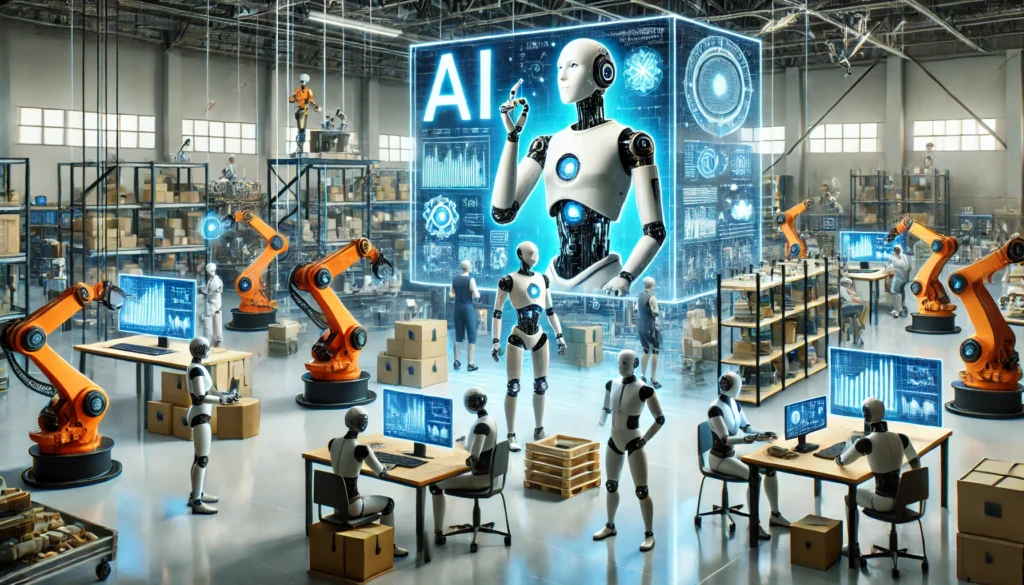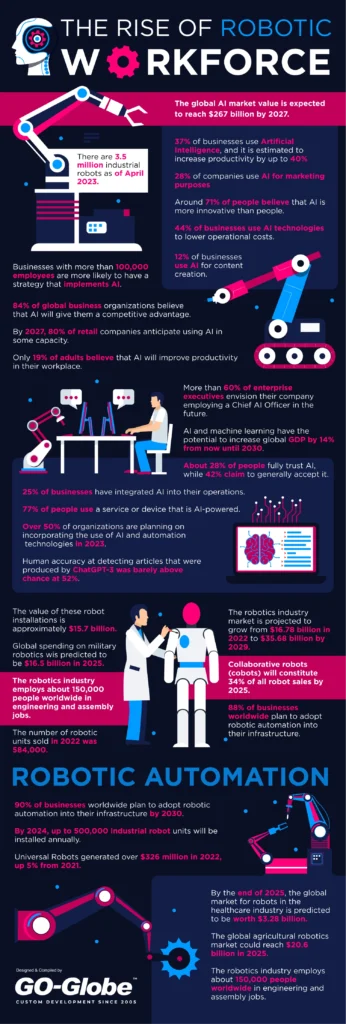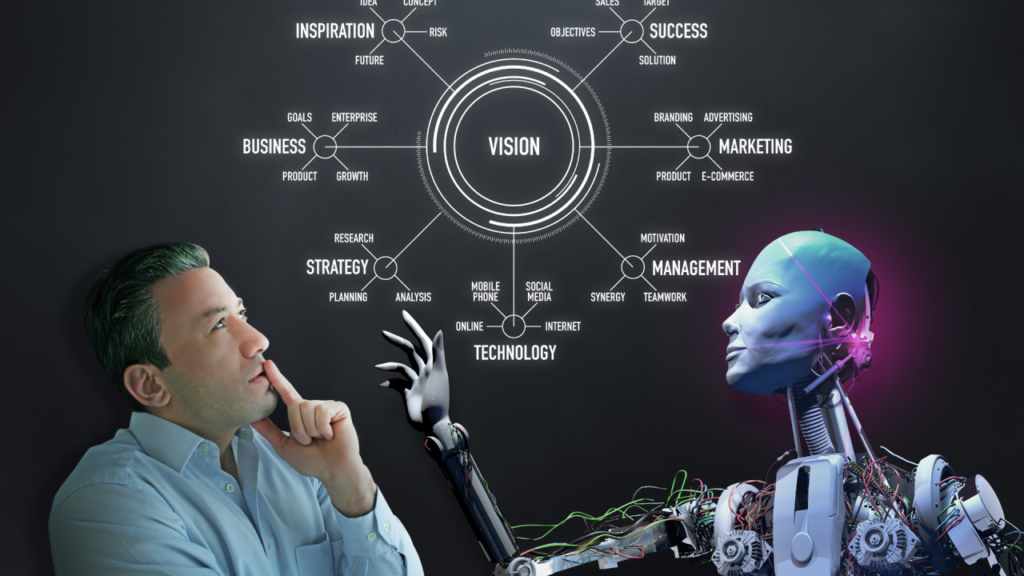Introduction
AI and robotics are no longer just futuristic concepts; they are transforming industries today. Robots equipped with AI are already being used in manufacturing, healthcare, logistics, and customer service. From self-driving cars to automated warehouses, AI-driven robots perform tasks traditionally done by humans—often at a higher speed, greater efficiency, and with fewer errors.
For instance:
- Manufacturing: AI-powered robots work 24/7, improving production efficiency.
- Healthcare: AI assists in surgeries, disease diagnosis, and patient care.
- Logistics: Automated systems manage inventory and deliveries.
With rapid advancements, concerns about job displacement are increasing. However, new opportunities are also emerging.
The World Economic Forum’s ‘Future of Jobs’ report estimates that AI will replace some 85 million jobs, but that 97 million new jobs that are adapted to the new division of labour between humans and machines could be created by 2025.

Learn more about AI in manufacturing and its industry impact.
AI Market Growth
According to Statista, the global AI market is projected to grow from $150.2 billion in 2023 to $1.59 trillion by 2030.
| Year | AI Market Value (Billion $) |
|---|---|
| 2023 | 150.2 |
| 2025 | 310.1 |
| 2030 | 1,590 |
Jobs at Risk: Which Roles Are Most Vulnerable?
As AI advances, some jobs are at higher risk. Routine, repetitive tasks that lack human judgment or emotional intelligence are the most susceptible. At-risk jobs include:
1. Manufacturing Workers
Robots are already handling assembly line tasks, such as welding, painting, and packaging.
2. Retail Workers
Automated checkout systems and AI chatbots are replacing cashiers and customer service agents.
3. Delivery Drivers
Autonomous vehicles and drones are being developed to transport goods without human intervention.
4. Administrative Roles
AI handles scheduling, data entry, and document management, reducing the need for human administrators.
5. Customer Support Agents
AI-powered chatbots and virtual assistants are answering inquiries and resolving issues faster than human agents.

Explore how AI is reshaping the job market in this Forbes article.
The New Jobs Created by AI Robots
Although AI is replacing certain jobs, it is also creating new opportunities in fields requiring human ingenuity, creativity, and problem-solving. Emerging roles include:
1. AI and Robotics Engineers
Develop and maintain AI-driven automation systems.
2. Data Analysts and Scientists
Interpret the vast amounts of data AI robots require to function optimally.
3. Ethics Consultants
Ensure AI technologies are deployed ethically and responsibly.
4. AI Trainers
Train AI systems to improve accuracy, especially in specialized industries like healthcare.
5. Human-Robot Interaction Specialists
Enhance collaboration between AI robots and human workers.
Learn more about AI-related career opportunities in this Guardian article.
The Future: Coexistence Between Humans and Robots
Rather than replacing human workers entirely, AI and robotics will augment human labor. Many jobs will integrate AI tools to increase productivity. For example:
- Healthcare: AI robots analyze medical data, but doctors still provide diagnoses and treatment.
- Manufacturing: Robots handle repetitive tasks, while humans oversee operations and optimize processes.
| Industry | AI Adoption Rate (%) |
|---|---|
| Healthcare | 48 |
| Finance | 52 |
| Manufacturing | 65 |
| Retail | 40 |
Read more about AI’s impact on human labor in this BBC article.
The Role of Education and Reskilling
As AI and robotics evolve, education and reskilling programs will be essential. Governments, institutions, and companies must invest in training for the future workforce.
Key skills for AI-driven industries:
- STEM (Science, Technology, Engineering, and Math)
- Data analysis and interpretation
- Programming and software development
- Creativity and critical thinking
- Emotional intelligence and empathy
Discover why reskilling is crucial for the future workforce in this World Economic Forum article.
Conclusion: Embracing the Future of AI and Robotics
While AI and robotics will automate some jobs, they will also create new opportunities and transform the workplace. The key to success is embracing change, reskilling, and focusing on uniquely human abilities.
Rather than replacing us, AI robots will augment our abilities, making work more efficient. By fostering human-machine collaboration, we can build a future where both coexist and thrive.

Stay ahead of AI advancements—subscribe for the latest updates! 🚀